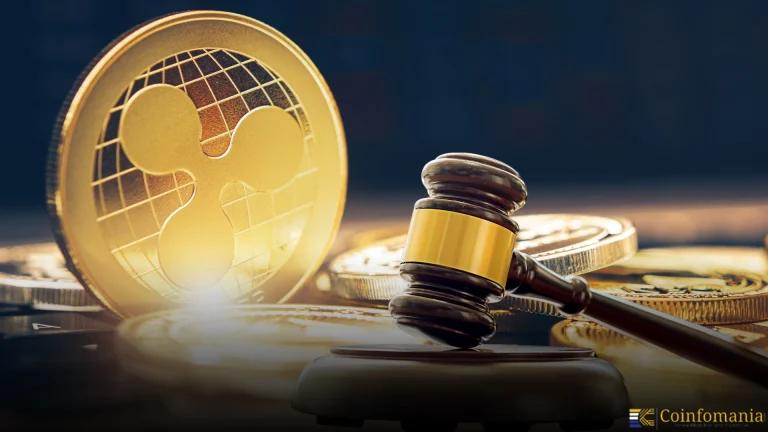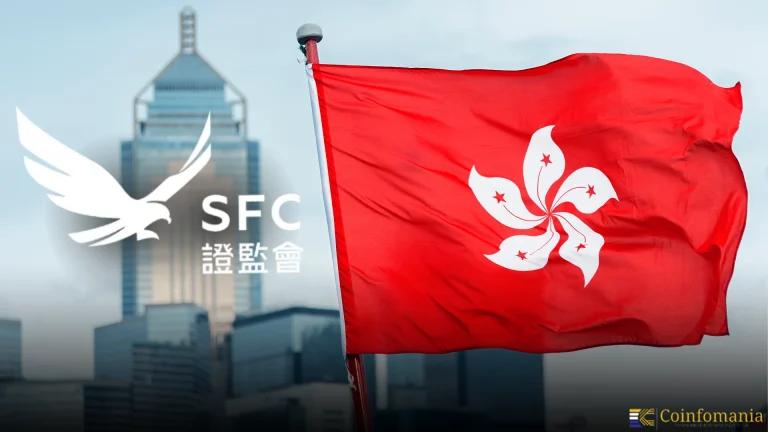Crypto Regulations in El Salvador
The governmental valuation of this loan of $1.4 billion from the IMF did not discourage the El Salvador government from acquiring further Bitcoins, and acquisition continues, obviously showing its commitment to this digital asset. Initially, the law compelled every business to accept Bitcoin in exchange for their products and services rendered; but in June 2022, […]

The governmental valuation of this loan of $1.4 billion from the IMF did not discourage the El Salvador government from acquiring further Bitcoins, and acquisition continues, obviously showing its commitment to this digital asset.
Initially, the law compelled every business to accept Bitcoin in exchange for their products and services rendered; but in June 2022, the government decided to tolerate BTC payments only on a voluntary basis. Until then, however, Bitcoin continued to remain a legal tender, and El Salvador did keep it within reserves even though the crypto industry in the country was estimated to be $8.5 million by 2025.
Even in the face of widespread low public adoption, market volatility, and skeptical attitudes from the international community that El Salvador continues to put into practice and explore various possibilities for truly creative approaches to cryptocurrency, including Bitcoin mining and possibly future bonds backed by Bitcoin. The fate of cryptocurrencies in this nation will now largely depend on how effectively the government combines regulation and growth to ensure continued leadership among countries that have adopted the digital currency-serves in the meantime battling practical economic factors.
Historical Context
El Salvador’s Bitcoin adoption was driven by:
- Remittance reliance (23% of GDP comes from remittances).
- Low financial inclusion (only 23% of Salvadorans had bank accounts in 2021).
- Bukele’s tech-forward agenda, including the launch of the Chivo Wallet.
Nonetheless, this requirement was lifted sometime in 2024-25 on account of low adoption and regulatory challenges. The use of BTC as legal tender in the country is still in effect, and it does retain reserves in Bitcoin.
Regulatory Framework
El Salvador’s cryptocurrency regulations are overseen by several key authorities:
- BCR (Central Bank of the Republic) – A regulatory body guarantees the legal tender status of Bitcoin concerning financial stability by the Central Bank.
- SSF (Regulator of the Financial System) – Supervises compliance with AML/CFT regimen; confers supervision over the virtual asset service providers (VASPs).
- Proposed National Commission on Digital Assets (NCDA) – It is envisioned to regulate Bitcoin bonds and the future licensing framework for cryptocurrencies.
AML/CFT Requirements:
- All crypto exchanges and wallet providers must register as VASPs.
- Mandatory KYC checks for transactions over $1,000.
- Suspicious activity reporting required for crypto transactions.
Taxation:
- No capital gains tax on Bitcoin transactions.
- Businesses accepting crypto must pay standard income tax on profits.
- Proposed 1% wealth tax on large Bitcoin holdings (under discussion).
Key Regulations in Force (2025):
- Bitcoin Law (Modified): Businesses no longer required to accept BTC
- VASP Regulation: Full compliance with FATF Travel Rule
- Chivo Wallet Rules: Government maintains control but with reduced subsidies
The framework continues evolving as El Salvador balances innovation with financial stability concerns.
El Salvador’s Crypto Policies
- Financial Inclusion – Bitcoin provides tools such as Chivo Wallet in getting more than 77% of the unbanked population.
- Remittance Efficiency – Core policy goals still are reducing fees for cross-border payments of 23% GDP.
- Foreign Investment – The idea of crypto gains tax-free and Bitcoin bonds is intended to attract capital and tech startups through its investment.
- Energy Monetization – Volcano-powered mining turns geothermal resources into economic value.
- Pragmatic Adjustments – Shifting from mandatory BTC acceptance to voluntary use reflects the real difficulties of adoption.
This keeps policies strategic while the Regulatory Framework stays technical.
El Salvador’s Approach to Crypto Innovation
Drawing back from the mandatory acceptance of Bitcoin, the country is, however, furthering its crypto innovations: volcanic geothermal mining, Lightning Network integration for instant transactions, and Bitcoin-backed instruments, such as the long-awaited Volcano Bonds. The government is working on Bitcoin’s tech adoption while navigating real-world modification challenges.
Key Challenges and Problems
There have been major challenges in El Salvador’s Bitcoin experiment. Only about 10% of Salvadorans, despite the government’s drive to have a higher use of BTC, regularly use it for payments. The Chivo Wallet system has suffered from technical glitches and security concerns.
With extreme volatility in the Bitcoin market, the country saw its reserves greatly threatened in terms of fiscal uncertainties and the delaying of the Volcano Bonds. International institutions will keep providing warnings about financial risks through the IMF and the World Bank without regard to the fact that these bodies are going to get into an economic blockade. The FATF has continued to track the country to ensure that it complies with anti-money laundering measures.
Key Regulatory Trends and Future Directions
As El Salvador moves through 2025, flexible crypto regulations will continue with the aim of making innovations effective and improving financial stability. Trade has become increasingly institutional-focused-with banks and fintech firms now increasingly integrating digital assets into their offerings.
Future Outlook:
- Potential revival of Bitcoin Bonds if market conditions stabilize.
- Growth of private-sector crypto solutions (particularly stablecoin adoption).
- Continued expansion of geothermal-powered Bitcoin mining operations.
It is important to note that while there are still hurdles in the envisioned project, this adaptive method shows a clear commitment from El Salvador to keep its status as a crypto innovator but with more realistic caution.
Conclusion
El Salvador’s Bitcoin journey has evolved from radical adoption to pragmatic regulation. The flexible nature of the 2025 approach will allow balancing innovation against stability, while the country will continue with geothermal mining advantages and exploring possibilities with Bitcoin bonds as a real-world laboratory for crypto integration at the national scale. Challenges exist, certainly, but the flexible approach of El Salvador brings some lessons to the broad canvas of global crypto.
FAQs
1. Can foreign investors freely trade cryptocurrencies in El Salvador?
Yes, foreign investors can freely trade cryptocurrencies in El Salvador. The government encourages crypto businesses through tax incentive facilities and easy obtaining of licenses for exchanges.
2. Crypto-to-crypto exchanges means paying capital gains taxes in El Salvador?
No, capital gains taxes are not to be imposed by El Salvador on such transfers. Only fiat conversions may be subject to standard business income tax.
3. How does El Salvador regulate stablecoins like USDT?
Stablecoins fall under the same VASP (Virtual Asset Service Provider) regulations as Bitcoin. Exchanges must comply with AML laws but face no additional restrictions.
4. What penalties exist for non-compliant crypto businesses?
Unregistered VASPs risk fines up to $500,000 or license revocation. The SSF (Financial System Regulator) monitors compliance strictly.
5. Do Salvadoran banks offer crypto custody services?
Yes, from 2023, licensed banks can custody crypto assets. They must maintain 1:1 reserves for customer holdings under BCR oversight.
6. How are crypto mining operations taxed?
Mining profits are taxed as corporate income (30%), but equipment imports are duty-free. Geothermal mining gets additional energy subsidies.
7. Must tourists declare crypto holdings at borders?
No, El Salvador has no declaration requirements for crypto wallets. However, spending over $10,000 in crypto triggers AML reporting.
8. Can businesses pay salaries in Bitcoin legally?
Yes, but taxes are deducted in USD equivalents. Employers must use BCR’s daily exchange rate for payroll calculations.
9. Does El Salvador recognize DAOs or DeFi protocols?
Not formally. DeFi platforms operate in a gray area unless registered as VASPs. The proposed NCDA may address this in 2026.
10. How much does the El Salvador government hold Bitcoin?
The latest report states that El Salvador holds 6,209 BTC in its treasury (USD $104,499 per coin) as of 2025, indicating continued accumulation with an additional 240 BTC being purchased since December 2024. The government continues its dollar cost averaging amid market volatility and IMF resistance.
Follow us on Google News
Get the latest crypto insights and updates.
Related Posts

Ripple Highlights Custody as Key to $18.9T Tokenized Assets by 2033
Shweta Chakrawarty
Author

Hong Kong SFC Issues New Custody Rules for Crypto Platforms
Shweta Chakrawarty
Author

South Korea and Vietnam eye $150B trade despite Trump tariff
Shweta Chakrawarty
Author